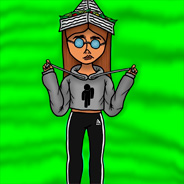6. ответьте на вопросы по тексту. 1. What does punishment for a crime depend on?
2. Which kinds of punishment do you know?
3. What does a judge take into account in declaring a sentence?
4. In what cases are fines used for criminal offences?
5. How does the length of sentences vary?
6. In what way are Britain and the USA trying to solve the shortage of space in prisons?
7. What is the main idea of probation?
8. What is a parole?
9. What does community service require?
Types of Punishment
There are several kinds of punishment available to the courts. Crimes are punished according to their seriousness. More serious crimes are given harsher penalties. In declaring a sentence a judge may take into account the following: prior criminal record, the age of the offender and other circumstances surrounding the crime, including cooperation with law enforcement officers, the amount of loss to victims, whether a weapon was used in the crime, the age or helplessness of the victims.
Punishment may include:
- a fine
- term of imprisonment (time in jail or prison)
- probation or parole
- community service
For criminal offences FINES are also often used as in civil cases when the offence is not a very serious one and when the offender has not been in trouble before.
For more serious crimes the usual punishment is IMPRISONMENT. The length of sentences varies from a few days to a lifetime. However, a life sentence may allow the prisoner to be released after a suitably long period if a parole board agrees that his detention no longer serves a purpose. In some countries, such as the Netherlands, living conditions in prison are fairly good because it is felt that deprivation of liberty is punishment in itself and should not be so harsh that it reduces the possibility of the criminal re-educating and reforming himself. In other countries, conditions are very bad. Perhaps because of an increase in crime or because of more and longer sentences of imprisonment, some prison cells have to accommodate far more people than they were built to hold. Britain and the United States are trying to solve the shortage of space by allowing private companies to open prisons.
PROBATION is the suspension of jail time. An offender on probation is ordered to follow certain conditions set forth by the court, often under the supervision of a probation officer. Offenders are ordinarily required to refrain from subsequent possession of firearms, and may be ordered to remain employed, live at a directed place, obey the orders of the probation officer. Offenders on probation might be fitted with an electronic tag (or monitor), which signals their whereabouts to officials. Also, offenders have been ordered to submit to repeated alcohol/drug testing or to participate in alcohol/drug or psychological treatment, or to perform community service work.
PAROLE is the supervised release of prisoners before the completion of their sentence in prison. They may be returned to prison if they violate the conditions of their parole. Conditions of parole often include things such as obeying the law, avoiding contact with the parolee's victims, obtaining employment, and maintaining required contacts with a parole officer.
Parole should not be confused with probation, as parole is serving the remainder of a sentence outside of prison, where probation is given instead of a prison sentence and as such, tends to place more rigid obligations upon the individual serving the term.
CORPORAL PUNISHMENT is a form of physical punishment that involves the deliberate infliction of pain as retribution for an offence, or for the purpose of disciplining or reforming a wrongdoer. This kind of punishment is still employed in Malaysia, Singapore, Pakistan, Zambia and Zimbabwe. Courts may sentence offenders to be caned or whipped. As well as corporal punishment, some Islamic countries such as Saudi Arabia and Iran use other kinds of physical penalties such as amputation or mutilation.
COMMUNITY SERVICE requires the offender to do a certain amount of unpaid work usually for a social institution such as a hospital.
120
470
Ответы на вопрос:
10.1
2. They worked on Monday but they didn’t work on Tuesday
3. We went to the shop but we didn’t go to the bank
4. She had a pen but she didn’t have any paper
5.Jack did French at school but he didn’t do German.
2. They worked on Monday but they didn’t work on Tuesday
3. We went to the shop but we didn’t go to the bank
4. She had a pen but she didn’t have any paper
5.Jack did French at school but he didn’t do German.
Реши свою проблему, спроси otvet5GPT
-
Быстро
Мгновенный ответ на твой вопрос -
Точно
Бот обладает знаниями во всех сферах -
Бесплатно
Задай вопрос и получи ответ бесплатно

Популярно: Английский язык
-
There are mamy big seas on the map.there are big small islands on the map. перевод...
 stevarmen21.07.2020 17:23
stevarmen21.07.2020 17:23 -
Мне по задали написать про свой город, что там есть хорошего (на ) и город феодосия....
 Helluing15.06.2023 21:18
Helluing15.06.2023 21:18 -
Напишите сочинение моя мечта по ....
 abi18206.02.2020 16:17
abi18206.02.2020 16:17 -
Что вписать? he was his brother yesterday they staydet in weeks i will my patents...
 hnbgh7hyng03.01.2022 11:56
hnbgh7hyng03.01.2022 11:56 -
Complete the readers emails. use the second conditional. then listen and check....
 dreamsk83119.01.2022 14:59
dreamsk83119.01.2022 14:59 -
5 Complete the questions about the text in Exercise 4 and then answer them....
 Тимур040320.09.2022 13:18
Тимур040320.09.2022 13:18 -
1.When you (to listen) to the news on the radio? 2.Who (to make) breakfast for...
 miran321.10.2022 08:24
miran321.10.2022 08:24 -
Втарое там надо буквы ответить...
 Bioloqq12.02.2023 13:43
Bioloqq12.02.2023 13:43 -
9-11 классы 9-11 классы 35. The participants race down dangerous whitewater...
 Meshnyakova5223.08.2020 00:38
Meshnyakova5223.08.2020 00:38 -
Please help me idk what I should WRITE ...
 Nemosing23.01.2020 07:32
Nemosing23.01.2020 07:32

Есть вопросы?
-
Как otvet5GPT работает?
otvet5GPT использует большую языковую модель вместе с базой данных GPT для обеспечения высококачественных образовательных результатов. otvet5GPT действует как доступный академический ресурс вне класса. -
Сколько это стоит?
Проект находиться на стадии тестирования и все услуги бесплатны. -
Могу ли я использовать otvet5GPT в школе?
Конечно! Нейросеть может помочь вам делать конспекты лекций, придумывать идеи в классе и многое другое! -
В чем отличия от ChatGPT?
otvet5GPT черпает академические источники из собственной базы данных и предназначен специально для студентов. otvet5GPT также адаптируется к вашему стилю письма, предоставляя ряд образовательных инструментов, предназначенных для улучшения обучения.
